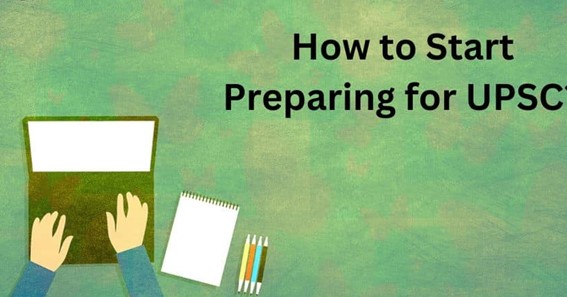The government organization hiring officers for the nation’s civil services is the Union Public Service Commission (UPSC). It administers the exam and makes the candidate selections using predetermined standards. The civil services are the backbone of the Indian government’s administration and include organizations like the IAS, IFS, IPS, IRS, etc.
This post covers ten things to know regarding the civil services examination. Almost everything about the UPSC test will be briefly covered in these facts.
Prelims, Mains, and Interviews are the three stages of the CSE test. Preliminary exam qualifiers are permitted to take the main exam, and main exam qualifiers are permitted to take the interview, the last stage of the examination. Based on the candidates’ results in the Main Exam and the Interview, a final Merit List is published.
Before starting the preparation, it is good to understand the ESE exam pattern and others, like IAS.
The Right Timing to Begin UPSC Preparation
Every year, lakhs of students take the Civil Services Test, but only 750 to 900 make the final merit list (depending on the number of openings). The best candidates must qualify, according to the selection rate. Therefore, it is advised that students begin their exam preparation as soon as possible.
The ideal time frame for finishing the UPSC CSE syllabus is 18 months, not counting the arbitrary Mains preparation. On the Mains Paper, applicants must submit responses to some of the trickiest questions, which include commentary on some of the most pressing problems that governments and societies around the globe are currently grappling with.
One needs complete writing, understanding, and skills for the UPSC preparation. Focusing on developing these qualities (including communication and speaking skills) will help students much when studying for the UPSC, even if one needs to prepare for the exam explicitly.
A candidate should start preparing the essentials and establish the habit of reading newspapers and being informed of varied subjects during graduation. To develop different parts of their personalities, they should also participate in various extracurricular activities. Remember that UPSC CSE preparation involves both the application of knowledge and the acquisition of new knowledge.
Click here – Top Tourist Destinations to Explore in Maharashtra, India
Graduation Affect Selection in UPSC
Your preparation for the UPSC CSE may benefit from the student’s graduate-level experience. However, most students have certain benefits. Some of the syllabus’s portions may be relatively simple for students with backgrounds in the arts to master, while other sections may be well-known to students with backgrounds in science and other fields.
The syllabus also requires a general understanding of a number of topics, including history, geography, politics, science and technology, economics, society, international relations, public administration, and disaster management. As a result, it guarantees that students from all backgrounds will come upon certain areas that are entirely unfamiliar to them.
How Much Time is Needed to Prepare for the UPSC?
The vast UPSC Syllabus and the exam’s paper format test candidates’ aptitude, deductive reasoning, reading comprehension, and writing abilities at various points during the test. It primarily assesses candidates’ eligibility for positions in public administration and, as a result, involves testing their knowledge of numerous fields, problems, and difficulties faced by the nation and the rest of the globe.
Any applicant must therefore have a solid foundation before beginning preparation. To achieve this, learn the fundamentals from the NCERT textbooks for classes 6 through 12. It will take about three months to study this on its own. Next, read the advanced text on a particular subject, which typically takes nine to ten months to master.
Then, for the Mains, you should spend a lot of time practicing composing answers and answering objective-type questions and understand the ese mains exam pattern. It typically takes aspirants between 12 and 18 months of focused study to grasp the entire material and pass the exam, depending on their study habits and aptitudes.
The Correct Method of Preparation
The preparation plan is essentially individual because the UPSC assesses you on various factors, and the exam necessitates that you master a variety of talents. If you are strong at writing, it might take less time to perfect the art of answering questions and more time to prepare for the preliminary exams. That explains why some applicants find the Prelims difficult while others struggle with the Mains or the Interview.
The Appropriate Method of Preparation
Yet, there are some hygiene-related tasks that students must complete. To lay the groundwork and review the fundamentals before beginning the preparation, the student must read through the NCERTs or the schoolbooks of any other board. To ensure they understand the concepts and can attempt the question in the exam hall properly, they must review the curriculum numerous times and routinely practice writing answers and taking tests.
The third requirement is to read and keep current with events and problems domestically and abroad. While the UPSC is looking for public administrators, you should understand many social, governmental, and political concerns.
Click here – 10 Key Secrets To A Happy Married Life according to Astrology
Conclusion
UPSC is the hardest or the most challenging exam in the world. There are many things you need to understand before starting UPSC preparation. Your ability to live a successful life will always have a positive attitude towards life and a clear sense of purpose. Never forget that you may always start now, no matter what career you choose.
FAQs
Which stream/subject should I choose for graduation to clear the UPSC exam?
You can select any of the graduate courses, including history, geography, political science, public administration, philosophy, etc. Furthermore students also choose economics, if they are interested.
Will there be minimum qualifying marks for UPSC Interview?
In the UPSC interview, there is no required minimum score. The percentage of points given for the interview often ranges from 40% to 80%.
